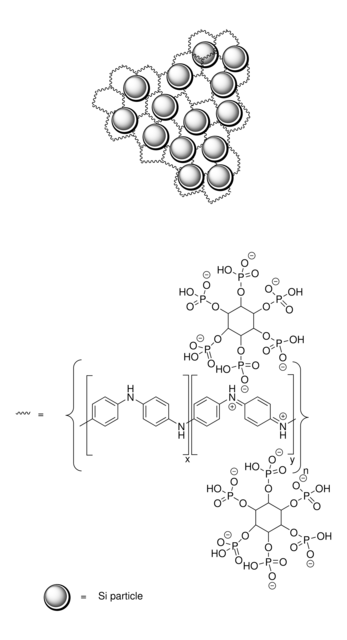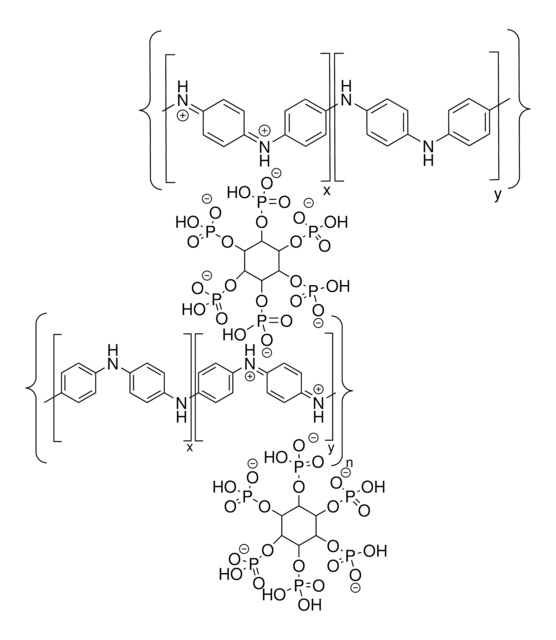918334
High-performance silicon anode
100 nm silicon particles in crosslinked conducting polyanaline matrix
Synonim(y):
100nm Si, 100nm SiReversible Si, Anode grade, Doped polyaniline, Nano-Si/PANi composite, Si encapsulated in 3D crosslinked polyaniline, Silicon nano particle
About This Item
Polecane produkty
Szukasz podobnych produktów? Odwiedź Przewodnik dotyczący porównywania produktów
Zastosowanie
This Si composite product is made by encapsulating nano-Si particles in the 3D cross-linked conductive polymer framework. It not only allows fast electrical and ionic transport, but also provides free space to allow giant volume expansion. This Si composite provides a ready-to-use electrochemically active nano-Si anode that would increase the capacity of conventional lithium ion battery, and improve the cycle-life performance of Si-based anodes.
Kod klasy składowania
11 - Combustible Solids
Klasa zagrożenia wodnego (WGK)
WGK 3
Temperatura zapłonu (°F)
Not applicable
Temperatura zapłonu (°C)
Not applicable
Certyfikaty analizy (CoA)
Poszukaj Certyfikaty analizy (CoA), wpisując numer partii/serii produktów. Numery serii i partii można znaleźć na etykiecie produktu po słowach „seria” lub „partia”.
Masz już ten produkt?
Dokumenty związane z niedawno zakupionymi produktami zostały zamieszczone w Bibliotece dokumentów.
Nasz zespół naukowców ma doświadczenie we wszystkich obszarach badań, w tym w naukach przyrodniczych, materiałoznawstwie, syntezie chemicznej, chromatografii, analityce i wielu innych dziedzinach.
Skontaktuj się z zespołem ds. pomocy technicznej





